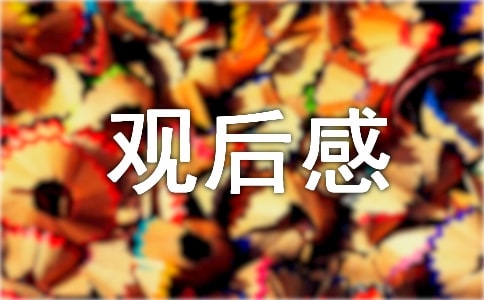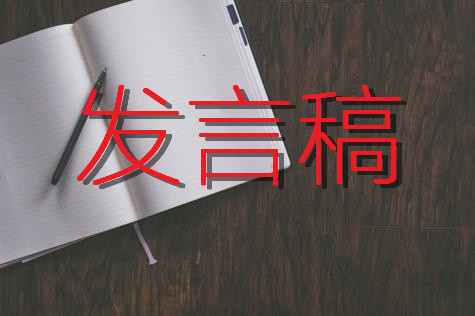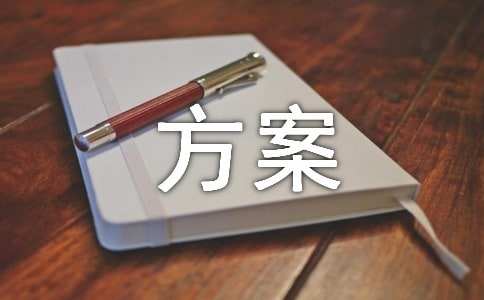【名人名言:假的真不了】 假的爱因斯坦名人名言
时间:2020-02-23 07:16:46 来源:雅意学习网 本文已影响 人 
在我们所处的时代里,人们抱着这样一个信念:只要我们愿意,我们可以在任何时刻重塑自我。于是,我们凭借自己的想象重新诠释了那些伟大思想者的至理名言。他们就这样以被诠释后的形象站在我们面前――性格的复杂性没有了,政治立场消失了,对变革之艰辛的领悟不存在了。
In a coffee shop not long ago, I saw a mug with an inscription from Henry David Thoreau1): “Go confidently in the direction of your dreams! Live the life you’ve imagined.”
At least it said the words were Thoreau’s. But the attribution seemed a bit suspect. Thoreau, after all, was not known for his liberal use of exclamation points2). When I got home, I looked up the passage (it’s from Walden3)): “I learned this, at least, by my experiment: that if one advances confidently in the direction of his dreams, and endeavors to live the life which he has imagined, he will meet with a success unexpected in common hours.”
Now Thoreau isn’t quite saying that each of us can actually live the life we’ve imagined. He’s saying that if we try, we’ll come closer to it than we might ordinarily think possible. I suppose that the people responsible for the coffee mug would say that they’d merely tweaked4) the wording of the original a little. But in the tweaking, not only was the syntax lost, but the subtlety as well.
Gandhi’s words have been tweaked a little too in recent years. Perhaps you’ve noticed a bumper5) sticker6) that purports to quote him: “Be the change you wish to see in the world.” When you first come across it, this does sound like something Gandhi would have said. But when you think about it a little, it starts to sound more like ... a bumper sticker. Displayed brightly on the back of a Prius, it suggests that your responsibilities begin and end with your own behavior. It’s apolitical, and a little smug7).
Sure enough, it turns out there is no reliable documentary evidence for the quotation. The closest verifiable remark we have from Gandhi is this: “If we could change ourselves, the tendencies in the world would also change. As a man changes his own nature, so does the attitude of the world change towards him.... We need not wait to see what others do.”
Here, Gandhi is telling us that personal and social transformation go hand in hand, but there is no suggestion in his words that personal transformation is enough. In fact, for Gandhi, the struggle to bring about a better world involved not only stringent8) self-denial and rigorous adherence to the philosophy of nonviolence; it also involved a steady awareness that one person, alone, can’t change anything, an awareness that unjust authority can be overturned only by great numbers of people working together with discipline and persistence.
When you start to become aware of these bogus9) quotations, you can’t stop finding them. Henry James10), George Eliot11), Picasso―all of them are being kept alive in popular culture through pithy, cheery sayings they never actually said.
My favorite example of the fanciful quotation is a passage that’s been floating around the internet for years. It’s frequently attributed to Nelson Mandela, the former South African president, and said to be an excerpt from his 1994 inaugural address.
“Our deepest fear,” the passage goes, “is not that we are inadequate. Our deepest fear is that we are powerful beyond measure. It is our light, not our darkness, that most frightens us. We ask ourselves,‘Who am I to be brilliant, gorgeous, talented, fabulous?’Actually, who are you not to be? You are a child of God. Your playing small does not serve the world.... As we are liberated from our own fear, our presence automatically liberates others.”
Picture it: Mr. Mandela, newly free after 27 years in prison, using his inaugural platform to inform us that we all have the right to be gorgeous, talented and fabulous, and that thinking so will liberate others. It’s hard to imagine it without laughing. Of course, it turns out it’s not actually an excerpt from this or any other known address of Mr. Mandela’s. In fact, the words aren’t even his; they belong to a self-help guru12), Marianne Williamson13).
Thoreau, Gandhi, Mandela―it’s easy to see why their words and ideas have been massaged into gauzy slogans. They were inspirational figures, dreamers of beautiful dreams. But what goes missing in the slogans is that they were also sober, steely men. Each of them knew that thoroughgoing14) change, whether personal or social, involves humility and sacrifice, and that the effort to change oneself or the world always exacts15) a price.
But ours is an era in which it’s believed that we can reinvent ourselves whenever we choose. So we recast the wisdom of the great thinkers in the shape of our illusions. Shorn16) of their complexities, their politics, their grasp of the sheer arduousness of change, they stand before us now. They are shiny from their makeovers, they are fabulous and gorgeous, and they want us to know that we can have it all.
不久前,在一家咖啡店里,我看到一个杯子上印着亨利・戴维・梭罗说的一句话:“充满自信地追求你的梦想!过你梦想中的生活。”
至少,杯子上写着这句话是梭罗说的。但是,这一出处却多少有些令人怀疑。毕竟大家都知道,梭罗不是那种动不动就用感叹号的人。从咖啡店回到家后,我查到了这样一段话(来自梭罗的《瓦尔登湖》):“至少,从我个人的经历来看,我领悟到了一点:如果一个人充满自信地朝着梦想的方向前进,努力地过他梦想中的生活,那么他将在不经意间收获意想不到的成功。”
这样看来,梭罗之意并非我们每个人都真的能过上梦想中的生活。他只是说,如果努力去做,那我们离梦想中的生活就会比预期的更近一些。我想,设计咖啡杯的人可能会说,他们只是把原话的措辞稍微改变了一下而已。然而,就是在这措辞的变换之间,不仅原句的句法结构改变了,其精妙意蕴也消失不见了。
近年来,甘地的话也遭到了轻度的篡改。或许,你曾在汽车保险杠的贴纸上看到过这样的标语:“要想改变世界,那就先改变自己。”这句话声称是援引甘地的名言。要是第一次听到,你会觉得这句话的确像是甘地可能会说的话。但是,只要稍微细想一下,你就会觉得这句话听起来更像是……保险杠贴纸上的话而已。写有这句话的贴纸明晃晃地贴在普锐斯汽车的后保险杠上,它是在暗示:你要为自己的行为负责。这与政治无关,而且还有点儿洋洋自得的意味。
意料之中的是,经查证,这句引言果然没有可靠的文字证据。在经证实的确是甘地说的原话中,我们找到的与这句话最相似的一句话是这样说的:“如果我们能够改变自己,那么世界的趋势也会发生变化。如果一个人能够改变自己的性格,那么世人对待他(她)的态度也将发生改变……我们无需观望别人的行动。”
在这里,甘地是在告诉我们:个人的改变与社会的变迁是紧密相连的。但他这句话的字里行间丝毫没有表明这一点:只要个人改变就足够了。事实上,对于甘地来说,要为建立一个更好的世界而奋斗,不仅要严厉克制一己私欲,严格遵守非暴力主义;而且还要坚信仅靠个人的力量是无法改变任何事情的,要坚信只有无数民众共同奋斗,坚守纪律,坚持不懈,才能颠覆不公正的政权。
一旦你开始意识到这些虚假引言的存在,就会不断地发现它们的踪迹。亨利・詹姆斯、乔治・艾略特、毕加索――所有这些人都因一些他们从未说过的箴言妙语而在大众文化中活跃着。
在这些天马行空地引用名言的例子当中,我最喜欢的一个是已在网上流传多年的一段话。人们常常以为这段话摘自南非前总统纳尔逊・曼德拉于1994年发表的就职演讲。
那段话是这样说的:“最令我们恐惧的,不是我们不够强大,而是我们的力量无法估量。最令我们恐惧的,不是我们的邪念,而是我们的光芒。我们问自己,‘我怎么会如此聪明、美丽、才华横溢、光彩照人?’事实上,有什么是你做不到的呢?你是上帝之子。你若妄自菲薄,将于社会无益……只要我们能从自身的恐惧中解脱出来,我们的存在自会令他人得以解脱。”
设想一下:刚刚结束27年牢狱生涯、重获自由的曼德拉先生,站在他的就职演讲台上,告诫我们说我们每个人都有权利成为美丽、才华横溢和光彩照人之人,而且只要我们抱着这样的想法,我们就能解放他人。这样的画面难免让人忍俊不禁。当然,事实也证明,这段话其实并非摘自曼德拉先生的就职演讲,或他的其他任何著名演讲。实际上,这段话根本就不是曼德拉说的,而是出自一位励志导师玛丽安妮・威廉森之口。
从梭罗到甘地再到曼德拉――他们的话语或思想被编进各种肤浅的标语中,其实这并不难理解。因为他们是灵魂的启蒙者,是美好梦想的缔造者。但那些标语未能体现的是,他们同时也是冷静和坚定之人。他们都清楚,彻底的改变――无论是个人的还是社会的――都需要谦卑和牺牲:而为改变自我或改变世界而付出的努力,往往需要付出代价。
然而,在我们所处的时代里,人们抱着这样一个信念:只要我们愿意,我们可以在任何时刻重塑自我。于是,我们凭借自己的想象重新诠释了那些伟大思想者的至理名言。他们就这样以被诠释后的形象站在我们面前――性格的复杂性没有了,政治立场消失了,对变革之艰辛的领悟不存在了。他们脸上涂脂抹粉、熠熠生辉、光彩照人、美丽炫目,然后他们想让我们知道,我们可以拥有一切。
1. Henry David Thoreau:亨利・戴维・梭罗(1817~1862),19世纪美国最具影响力的作家、思想家和自然主义者
2. exclamation point:(也作exclamation mark)感叹号
3. Walden:《瓦尔登湖》,亨利・戴维・梭罗所著的第一本散文集,出版于1854年。在该书中,梭罗详尽描述了他在瓦尔登湖畔一片再生林中生活两年多的经历和感悟。
4. tweak [twiːk] vt. 对……作微调
5. bumper [ˈbʌmpə(r)] n. (机动车的)保险杠
6. sticker [ˈstɪkə(r)] n. 涂有胶或粘着剂的标签或纸片
7. smug [smʌ�] adj. 自鸣得意的
8. stringent [ˈstrɪndʒ(ə)nt] adj. 严厉的,严格的
9. bogus [ˈbəʊ�əs] adj.〈美〉假的,伪造的
10. Henry James:亨利・詹姆斯(1843~1916),美国编剧、作家,代表作有《黛西・米勒》(Daisy Miller)、《贵妇画像》(The Portrait of a Lady)、《金碗》(The Golden Bowl)等。
11. George Eliot:乔治・艾略特(1819~1880),英国小说家,与狄更斯和萨克雷齐名,代表作有《弗洛斯河上的磨坊》(The Mill on the Floss)、《米德尔马契》(Middlemarch)等。
12. guru [ˈ�ʊruː] n. 导师,倡导者
13. Marianne Williamson:玛丽安妮・威廉森(1952~),美国畅销书作家,全球知名的励志导师
14. thoroughgoing [ˌθʌrəˈ�əʊɪŋ] adj. 彻底的,全面的
15. exact [ɪ�ˈzækt] vt. 要求,强求
16. shear [ʃɪə(r)] vt. 剥夺,夺去
推荐访问:名人名言 名人名言:假的真不了 假的名人名言 名人名言









